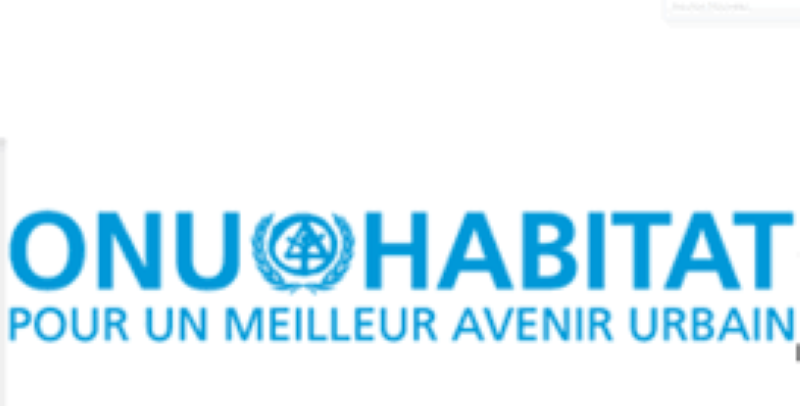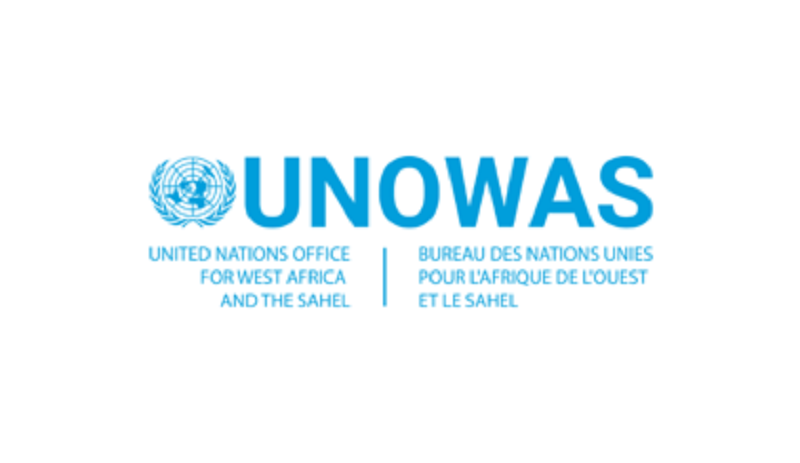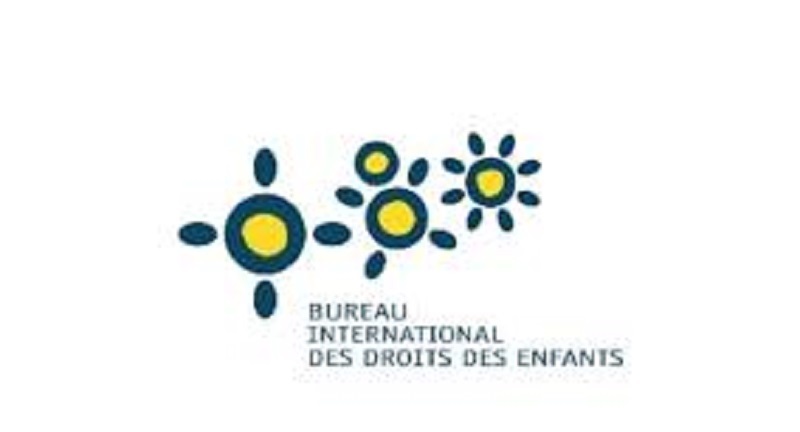L’UNICEF travaille dans certains des endroits les plus difficiles du monde, pour atteindre les enfants les plus défavorisés de la planète. Pour sauver leur vie. Pour défendre leurs droits. Pour les aider à réaliser leur potentiel.
Dans 190 pays et territoires, nous travaillons pour chaque enfant, partout, chaque jour, afin de construire un monde meilleur pour tous.
Et nous n’abandonnons jamais.
Pour chaque enfant, l’espoir
UNICEF Mali Country Programme (2020-2024) is aligned with the United Nations Sustainable Development Cooperation Framework (UNSDCF) 2020–2024, the United Nations integrated strategy for the Sahel, the UNICEF Strategic Plan, 2018–2021 and the UNICEF Gender Action Plan, 2018–2021. The vision of the Mali country programme of cooperation is that children and adolescents, both girls and boys, especially the most disadvantaged, deprived and hard-to-reach and those affected by crises, live and participate in resilient communities, enjoying a protective, nurturing and supportive environment that allows them to unlock their full potential throughout their lives. towards the Sustainable Development Goals. The emphasis is on increased demand for and delivery of integrated and inclusive services through a focus on three key windows of opportunity, supported by two cross-cutting programme components: (a) The early years (0–5 years), focusing on health, nutrition, birth registration, water and sanitation, protection and early learning for school readiness; (b) The formative years (6–12 years), facilitating successful transitions, with an emphasis on safe and inclusive quality education and the prevention of violence and exploitation; (c) The second decade (13–18 years), focusing on adolescent empowerment, skills development, well-being, the promotion of child-friendly behaviours and the prevention of violence and exploitation; (d) An enabling environment for community resilience through active participation in social service management, monitoring and social protection; (e) Programme effectiveness.
Purpose for the job: Under the supervision of the Deputy Representative Operations, the Risks and Compliance Specialist will be responsible for strengthening risk assurance and compliance efforts in the Mali CO.
He/She will be responsible for providing complementary expertise, support, and monitoring related to the management of risk, including but not limited to the development, implementation, and continuous improvement of risk management practices at a process, systems, and entity level.
He/she will ensure the achievement of risk management objectives is in compliance with organizational rules and regulations, and acceptable ethical behavior; internal control; information and technology security; sustainability; and quality assurance. Moreover, he/she will provide analysis and reports on the adequacy and effectiveness of risk management and internal control.
How can you make a difference?
Summary of key functions/accountabilities:
1. Risk management support
- Ensure that management provides staff with access to relevant training and that staff and other personnel understand key UNICEF policies including PSEA, Fraud and Ethics;
- Provide guidance and support the office in the annual risk assessment process and monitor reliability of reports and their compliance with applicable rules and regulations.
- Ensure the monitoring of risk mitigation action plans including a mid-term review.
- Lead the office peer reviews process, undertake visits to project sites and field offices to verify the quality of performance
- Ensure the risk management approach is embedded in any project/proposal and in any major decision made by the management.
2. Compliance support
- Review the office systems, procedures and processes for compliance with organizational rules and regulations
- Enforce and strengthen internal controls to ensure that systems are in place to prevent, detect and report non-compliance;
- Review internal work processes in Programme and Operations to ensure that accountabilities are clear and placed at the adequate levels as per global policies and/or best practices;
- Establish a risk-based system to periodically and systematically review a sample of activities (Programme and Operations) to ensure they are carried out according to established work processes and in compliance with UNICEF policies and Procedures
- Ensure smooth preparedness of internal and external audit, conduct a quality assurance and follow-up on the implementation of the recommendations and provides feedback to the management.
- Fraud risk support
- Support the management of the office in collecting evidences to respond to OIAI’s queries when initially assessing allegations of fraud and misconduct or during actual investigations;
- Advise the management on lessons learned from investigations and measures to be taken accordingly;
- Ensure the implementation of the global anti-fraud strategy, suggest internal fraud prevention mechanisms and alert the management on any fraudulent issues as well as unethical behaviors detected;
- Lead the process of Fraud risk training / orientation to Partners and suppliers.
- Oversight and advisory to the Management
- Advise the management on actions to be taken to enforce and strengthen accountabilities for a robust, responsive and transparent governance framework;
- Contribute to effective management process by participating in key governance meetings (particularly CMT, PMT and OMT);
- Coordinate Risk assessment and control activities with other UN agencies by representing the office in meetings related to Risks and Compliance activities.
- Create awareness/capacity building
- Establish a system to document and report weaknesses in internal control and implement actions aimed at addressing internal controls gaps (SOP, memos…) and building the capacity of responsible staff;
- Periodically test compliance with the Table of authority and adherence to the delegation of authorities in line with UNICEF policies and Procedures; and ensure staff understand roles and responsibilities delegated to them;
- Review the conformity of statutory and non-statutory committees, assess committee members have been trained/oriented on their roles and responsibility;
- Analyze cause and effect of policy changes to the operations of the office, anticipate changes and advise on the new way of doing business;
- Support the implementation of a continuous learning and development plan for the Risk and Compliance function.
Regional support
- On request, support the Regional Office in conducting reviews exercises in countries where Risk and Compliance positions are not established, or in supporting any other review in the area of expertise (Peer reviews, assessment…);
To qualify as an advocate for every child you will have…
- An advanced university degree (Master’s or higher*) in Business Administration and Financial Management. Operations Management, Strategic Management, Risk Management, Audit, Investigation, Internal Control, Statistics and Data Analysis or Accounting certifications are considered as assets.
*A first University Degree in a relevant field combined with 2 additional years of professional experience may be accepted in lieu of an Advanced University Degree
- A minimum of 5 years of professional experience in Risk and Compliance or another directly relevant area, several of which in internal audit. Experience in financial management, particularly developing and implementing financial control systems, ERM, audits, internal control preferably with international organizations, NGOs and UN.
Field experience /familiarity with Emergency is highly desirable
- Fluency in French and English required. Knowledge of another official UN language or a local language of the duty station is an asset
For every Child, you demonstrate…
UNICEF’s Core Values of Care, Respect, Integrity, Trust, Accountability and Sustainability (CRITAS) underpin everything we do and how we do it. Get acquainted with Our Values Charter: UNICEF Values
UNICEF competencies required for this post are…
(1) Builds and maintains partnerships(2) Demonstrates self-awareness and ethical awareness(3)Drive to achieve results for impact(4)Innovates and embraces change(5) Manages ambiguity and complexity(6)Thinks and acts strategically(7)Works collaboratively with others.
During the recruitment process, we test candidates following the competency framework. Familiarize yourself with our competency framework and its different levels: competency framework here.
UNICEF is here to serve the world’s most disadvantaged children and our global workforce must reflect the diversity of those children. The UNICEF family is committed to include everyone, irrespective of their race/ethnicity, age, disability, gender identity, sexual orientation, religion, nationality, socio-economic background, or any other personal characteristic.
We offer a wide range of benefits to our staff, including paid parental leave, breastfeeding breaks and reasonable accommodation for persons with disabilities. UNICEF strongly encourages the use of flexible working arrangements.
UNICEF has a zero-tolerance policy on conduct that is incompatible with the aims and objectives of the United Nations and UNICEF, including sexual exploitation and abuse, sexual harassment, abuse of authority and discrimination. UNICEF is committed to promote the protection and safeguarding of all children. All selected candidates will, therefore, undergo rigorous reference and background checks, and will be expected to adhere to these standards and principles. Background checks will include the verification of academic credential(s) and employment history. Selected candidates may be required to provide additional information to conduct a background check.
Remarks:
UNICEF’s active commitment towards diversity and inclusion is critical to deliver the best results for children. For this position, eligible and suitable female candidatures are encouraged to apply.
Mobility is a condition of international professional employment with UNICEF and an underlying premise of the international civil service.
UNICEF appointments are subject to medical clearance. Issuance of a visa by the host country of the duty station, which will be facilitated by UNICEF, is required for IP positions. Appointments are also subject to inoculation (vaccination) requirements, including against SARS-CoV-2 (Covid). Government employees that are considered for employment with UNICEF are normally required to resign from their government before taking up an assignment with UNICEF. UNICEF reserves the right to withdraw an offer of appointment, without compensation, if a visa or medical clearance is not obtained, or necessary inoculation requirements are not met, within a reasonable period for any reason.
Only shortlisted candidates will be contacted and advance to the next stage of the selection process.
Eligible UNICEF International Professional (IP) Staff Members on fixed-term, continuing or permanent contracts applying to a Temporary Appointment, which is dedicated to L3 (or L2) Response, may be able to retain a lien and their fixed-term entitlements. The conditions of the temporary assignment will vary depending on the status of their post and their current tour of duty, and relocation entitlements may be limited as per the relevant policies.
** Bamako is a Category D; Non-Family duty station. The Rest and Recuperation Cycle is 8 weeks.





